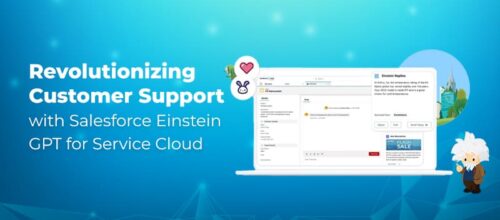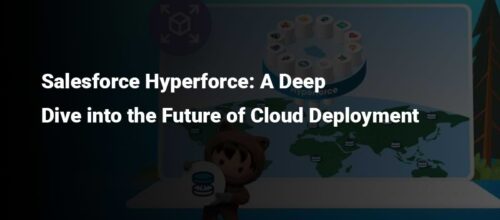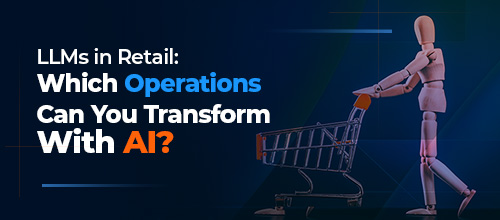Zowe API Integration: Bridging the Gap Between Mainframe and Modern Technologies

Written by Harini Krishnamurthy
Content Writer
June 16, 2023
Introduction to Zowe and API Integration
Zowe is an open-source framework that enables the modernization and integration of mainframe systems with modern technologies. It provides tools, APIs, and documentation to facilitate applications’ development, deployment, and management on mainframe systems.
At its core, Zowe aims to simplify and streamline the interaction between mainframe systems and other platforms, such as cloud environments, mobile devices, and web applications. It promotes using industry-standard APIs and modern development practices to unlock the value of mainframe assets and promote collaboration across different technology domains.
One of the critical features of Zowe is its support for API integration. It allows developers to interact with mainframe systems by leveraging RESTful APIs, making integrating mainframe applications with other modern technologies and platforms more accessible.
Overview of Zowe API
- Zowe Components: Zowe comprises several components that provide a comprehensive mainframe interface. These components include:
- Zowe Application Framework: Provides a web-based interface for accessing mainframe resources.
- Zowe API Mediation Layer: Acts as a gateway between the web interface and the mainframe systems, allowing for secure communication and data exchange.
- Zowe CLI (Command Line Interface): Offers a command-line tool for interacting with mainframe systems, ideal for automation and scripting tasks.
- Zowe Explorer: A browser-based file explorer that allows users to navigate, edit, and manage files on the mainframe.
- RESTful APIs: Zowe leverages RESTful APIs to enable communication between the various components and mainframe systems. REST (Representational State Transfer) is an architectural style for designing networked applications, and RESTful APIs use HTTP protocols for data transfer. Zowe provides a set of predefined APIs for interacting with different mainframe resources, such as datasets, jobs, and system configurations.
Benefits of Using Zowe for API Integration
- Modernization: Zowe enables organizations to modernize their mainframe environments by providing a platform for integrating mainframe systems with modern technologies, such as web and mobile applications. It allows developers to leverage APIs and SDKs to build applications that can access mainframe resources, making it easier to incorporate mainframe data and processes into modern workflows.
- Simplified Integration: Zowe provides a unified and standardized interface for interacting with mainframe systems through APIs. It abstracts the complexity of working with mainframe resources, making it easier for developers to integrate mainframe data and services into their applications. This simplification streamlines the integration process and reduces development time and effort.
- Improved Developer Productivity: By providing a familiar and modern development environment, Zowe enhances developer productivity. It offers a command-line interface (CLI) and web-based user interface (UI) that developers can use to interact with mainframe resources using familiar tools and workflows. This reduces the learning curve and allows developers to leverage their existing skills.
- Enhanced Collaboration: Zowe facilitates collaboration between mainframe and non-mainframe teams. It provides a common platform and language for both sides to work together effectively. Developers can use Zowe to integrate mainframe data and services into their applications, while mainframe administrators can leverage Zowe to manage and monitor mainframe resources.
- Increased Agility: Zowe enables organizations to be more agile by leveraging mainframe assets in their DevOps processes. With Zowe, mainframe systems can participate in continuous integration and delivery (CI/CD) pipelines, enabling faster and more frequent releases. It allows for the automation of mainframe-related tasks, improving efficiency and reducing manual errors.
- Security and Governance: Zowe incorporates security and governance features to ensure secure access to mainframe systems. It supports authentication and authorization mechanisms, enabling fine-grained control over who can access specific mainframe resources. Zowe also provides auditing capabilities to track and monitor mainframe activities, enhancing compliance and governance.
- Extensibility: Zowe has an extensible architecture that allows for the integration of additional tools and plugins. Organizations can customize Zowe to meet their specific requirements by adding extensions developed by the Zowe community. This extensibility ensures Zowe can adapt and evolve to support new technologies and use cases.
Read the case study to learn how our team helped a leading financial company migrate mainframe SCM to GitHub.
Real-World Use Cases of Zowe for API Integration
Zowe has been used in various real-world use cases for API integration with mainframe systems. Here are a few examples:
- Application Modernization: Organizations often have existing mainframe systems with critical business data. With Zowe, developers can integrate mainframe data and services into modern web and mobile applications. For instance, a banking institution can use Zowe to expose mainframe APIs that provide customer account information, allowing customers to access their account details through a mobile banking app.
- DevOps Automation: Zowe enables mainframe systems to participate in DevOps processes. It allows the integration of mainframe resources and processes into CI/CD pipelines. For example, a retail company can use Zowe to automate the deployment of mainframe components, such as updating inventory data or processing online orders, as part of their DevOps workflow.
- Data Integration and Analytics: Mainframe systems often store large amounts of valuable data. Zowe can integrate mainframe data with modern analytics platforms and tools. This enables organizations to leverage mainframe data for business intelligence, reporting, and analysis. For instance, a healthcare provider can use Zowe to expose mainframe APIs that provide patient health records. This allows data scientists to analyze and gain insights from the combined mainframe and non-mainframe data.
- Cross-Platform Integration: Zowe provides a unified interface that abstracts the complexities of working with different mainframe platforms. This allows for seamless integration between mainframe and non-mainframe systems. For example, an insurance company can use Zowe to integrate mainframe policy management systems with a customer relationship management (CRM) system, enabling agents to access and update policy information from within the CRM interface.
- Hybrid Cloud Integration: Zowe can facilitate the integration of mainframe systems with hybrid cloud architectures. It allows organizations to expose mainframe APIs and connect mainframe resources with cloud-native applications and services. For example, a logistics company can use Zowe to integrate mainframe inventory systems with cloud-based supply chain management platforms, ensuring real-time visibility and synchronization of inventory data across different systems.
- Partner and Third-Party Integration: Many organizations must integrate their mainframe systems with external partners or third-party systems. Zowe can be a common integration platform, providing a standardized interface for partners to interact with mainframe resources. For example, a financial institution can use Zowe to expose mainframe APIs that enable partners to access specific banking services securely and efficiently.
Conclusion
Zowe API integration is vital for modernizing mainframe systems and ensuring seamless integration with other applications. It unlocks the potential of mainframe data, enables cross-platform integration, enhances developer productivity, facilitates DevOps practices, improves user experience, and preserves mainframe investments. By embracing Zowe API integration, organizations can bridge the gap between mainframe and modern technologies, driving innovation and efficiency in their IT ecosystems.
Zowe API integration with Royal Cyber expertise can provide a comprehensive solution for organizations looking to modernize their mainframe systems and seamlessly integrate them with other applications. Royal Cyber, a leading technology solutions provider, offers expertise in implementing and leveraging Zowe APIs to enable efficient and secure integration with mainframe resources. By leveraging Royal Cyber’s expertise in Zowe API integration, organizations can accelerate their mainframe modernization initiatives, improve operational efficiency, and unlock the full potential of their mainframe systems in today’s interconnected digital landscape. For more information, you can email us at [email protected] or visit www.royalcyber.com.



